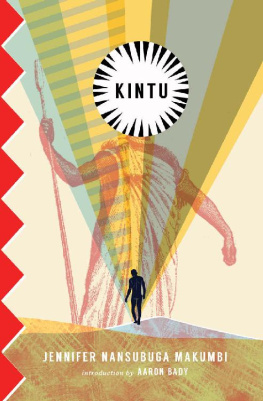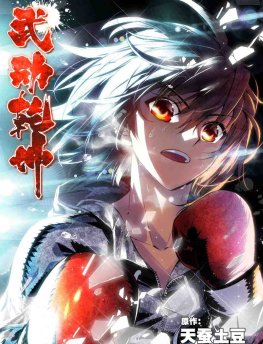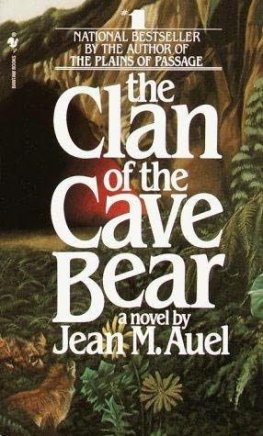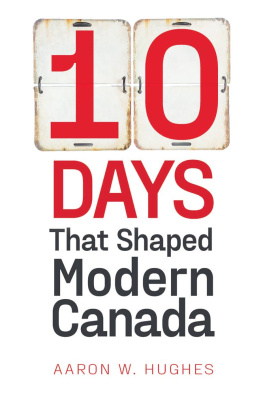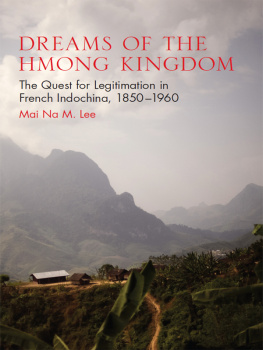


Published by Transit Books
2301 Telegraph Avenue, Oakland, California 94612
www.transitbooks.org
Copyright 2017 Jennifer Nansubuga Makumbi
Introduction Copyright 2017 Aaron Bady
First published in 2014 by Kwani Trust, Nairobi
ISBN: 978-1-945492-03-7
Library of Congress Control Number: 2016961684
Design & Typesetting
Justin Carder
Distributed By
Consortium Book Sales & Distribution | (800) 283-3572 | cbsd.com
All rights reserved. This book or any portion thereof may not be reproduced or used in any manner whatsoever without the express written permission of the publisher except for the use of brief quotations in a book review.
In memory of my grandfather, Elieza Mayombwe Makumbi, who told folktales and taught me how to tell them; my father, Tony Kizito Makumbi, who felt that all I needed were stories in books and who introduced me to Shakespeare when I was only eight years old. And to Aunt Catherine Makumbi-Kulubya, for holding my fathers dream.
TABLE OF CONTENTS
Ugandans have waited a long time for the book you are holding to exist. Since it was first published in 2014, after winning the Kwani? Manuscript Project, the enthusiasm with which Kintu has been received in Uganda has been difficult to describe but remarkable to witness. Last year, I had the pleasure of trailing behind Jennifer Nansubuga Makumbi at the Writivism literary festival in Kampala, as readers and other writers caught at the hem of her garment. In such circles, it is hard to overstate what a rock star she is, and how precious this book has already become. The book sold out immediately, and even those who hadnt read it were talking about it and about where to get it. Its not hyperbole to call Kintu the great Ugandan novel. It is, simply and obviously, a plain fact.
Her reception in the UK, where she lives with her family, has been very different. Even after winning the 2014 Commonwealth Short Story Prize, Makumbi was told that Kintu was unpublishable, that it was much too African for British readers. Perhaps a sprawling multicharacter saga like this one might work if the characters were white, if the proper nouns were places like Oxford or Southampton, and if their names were solid English names (and for goodness sake, only one name each!). In Great Britain, after all, who has even heard of Kintu, the mythical first man on earth and founder of the Buganda Kingdom? Who would know to pronounce his name with a soft ch sound, instead of a hard k? Perhaps British readers might be interested in the exoticism of the historical novel that Kintu starts off as beingthe ninety pages or so that are set in the 18th century, before the rest of the novel reverts to 2004but could the book-buying public be expected to care about the struggles of an extended family in present-day Kampala?
If you must write about Africa, then you write about dictators, ethnography, and war; these are the sorts of stories that confirm what people already know about Africa. And if you must write about Uganda, then you place a white character in the middle of the action. You write about Africans who have left Africa and migrated to the United States or Europe. You write about the legacies of colonialism. If you cant make Europe the hero of the storyand these days, you cantthen you can at least make Europe the villain. One editor rejected the manuscript because Makumbi didnt want to change it: to publish it, they would have to change it, and the novel is too good to change.
When Transit Books first read Kintu, they signed it immediately. They werent concerned that American readers would be overwhelmed by the unfamiliar places and names, or that the novel was the wrong kind of African. They put their faith in the story, trusting their readers to take that journey. Its a mistake to worry whether non-Ugandan readers will get this novel: as with any great work of fiction, this one teaches you how to read it. But its a measure of the preciousness of the book you hold in your hands that I cannot help but burden you with a few words of advice, before you begin your journey.
The main thing to know, simply, is that this novel was written for Ugandans. This might seem obvious, but it isnt. What, after all, is a Ugandan? For one thing, a Ugandan might be someone for whom complex and indefinite extended families are more the norm than the exception, a world in which siblings might be cousins, parents arent always parents, and everybody can have at least three different names, depending on who theyre standing next to. A Ugandan might be someone for whom family is a much older and more permanent institution than the nation, and in which nothing is more political than sex and children. A Ugandan might also be someone who knows the name Kintu, whether or not they know what it means. At the highest level of abstraction, perhaps, a Ugandan is someone with firm ideas about what it means to be Ugandan, and who it is that isnt. But if Uganda is real, its borders are anything but clear and obvious: American readers might struggle to keep track of the names and relations that proliferate across the pages of this novel, but its not like these things are easy for Ugandans. They are not. If family is the texture of everyday life, then everyday life is as confusing and indefinite (and borderline fictional) as family history itself.
More concretely, this book is for Ugandans because its saturated with Ugandan words and places and names. From the hills and valleys that the urban jungle of Kampala now sprawls acrossbut that once looked out over the Buganda Kingdomto the long roads and rivers that crisscross the country, Kintu is a novel about a singular and all-encompassing sense of place. And these references tell stories. You may speed past them on your way to your destination, but even a traveler who cannot understand the languagewho can only look, see, and move onwill still feel the depth of the novels engagement with Ugandan history. This is part of Kintus magic: you will feel more than you know. This also applies to Ugandans, especially those for whom history is the story of Europe in Africa.
As Makumbi has been quick to explain, Kintu flowed out of a desire to give Ugandans a taste of their own long and complicated history, to do for Ugandans something like what Chinua Achebe novels did for Nigerians in the 1960s: to make them look at a hill, for example, and know that the Ganda have been climbing it for centuries. To remind them that Ugandas history did not begin in 1962, when it gained independence from Great Britain, or even a few years earlier, when Europeans first discovered them. To place todays cultural politicsof citizenship, sexuality, and spiritualityinto the deep and long endurance of centuries. Most of all, to tell a singular tale of Uganda as an expansive family saga, in which blood ties only mean as much as the stories we tell about them.
Makumbi began to write this story in 2003, in short bursts of frenetic, intense work that were followed by long fallow periods of distraction and contemplation. She was thinking about many things. One of them was a memory from her childhood, when she read Chinua Achebes Things Fall Apart, in which a father kills his foster son. It cut much too close! she told me. I was so young. I found myself looking at my fathers hands and wondering, Would he kill me? Would he kill me? When her father lost his faculties, years later, she found herself dwelling on mental illness and the stereotype of Africa as a mad place. And when she began a PhD in African literature, in England, she became frustrated at the insistence of her supervisors that African Literature be the story of Europe in Africa. As she began to write what she was then calling
Next page
